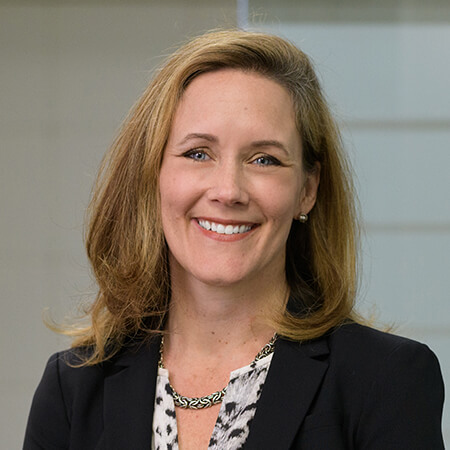“Things are strongest where they're broken.” – Louise Penny I began drafting this newsletter about the Federal Reserve in early January. The quote above is

Financial Literacy for Children and Young Adults: Start Early and Talk Often
Many kids see money go in and out of their parents’ wallets and, depending on their age, most don’t know how it got there nor how quickly it can disappear. Or as it happens in my home, that brown box with the swoosh of a smile arrives with some regularity on our doorstep and my children think that this is fun and they should be able to buy anything they want, whenever they want. Redesigning and redecorating my daughter’s bedroom is becoming an all too frequent conversation topic.
Despite the basic benefits of talking to children about money, too many people usually postpone these types of discussions. The problem is that at a certain point, parents may feel that they cannot have these conversations once their children become adults. We know how fast time flies. At least credit card companies can no longer throw free T-shirts at college students for signing up for a credit card. Still, there is no good substitute for talking to your children early, often, and explicitly about financial goals and values, and this should help them establish good habits for a lifetime of financial decision-making.
Your first concern may be that you are terribly uncomfortable telling them anything meaningful about how much wealth your family has accumulated and what you own. In fact, this subject may be right up there with a discussion of the birds and the bees. We agree this can be an uncomfortable discussion depending on the age of the child. Deciding when, and if, to tell them such things is very personal, and is up to you, and it may be years before they have the maturity to really understand what the information means. But some sort of discussion fairly early on is important, just to get the topic started.
Recently, the U.S. Treasury Department recommended “mandatory” financial-literacy courses for college students. According to The Wall Street Journal, some Ivy League schools are starting to add personal-finance training to their curricula and more states are recognizing the importance of financial literacy at the high school level. But like most forms of literacy, and the desired achievement of the “fluency” that goes with it, financial literacy should ideally start at an even younger age. For example, families can talk about what their values are when it comes to money. What does wealth mean to you as a family? What do you want your wealth to accomplish? Money issues are as much emotional as they are strictly financial, so sharing aspects of how you think about your wealth and spending will go a long way for them…further than just how to balance their VenMo or Paypal accounts.
Also, as much as we hope they won’t, children do compare: homes, cars, clothing, tech gadgets, etc. When applying your own family values to these types of considerations, they may not like it, but it can help them size up the totality of the situation.
Furthermore, families can explore such topics as budgeting, credit, balancing bank accounts, inflation, debt, taxes, saving, investing, retirement planning and charity. Fewer and fewer young people have check books these days, preferring online banking apps instead, but even this might be a useful life skill worth learning. The opportunities for teaching such concepts in your everyday life are everywhere and you may find that your children enjoy the engagement!
I’ve even tasked my oldest children with an investing project over the summertime that has turned into a fun and educational competition. If you’d like any guidance on ideas for these kinds of conversations with your children, your Wealth Manager can help.
Articles and Commentary
Information provided in written articles are for informational purposes only and should not be considered investment advice. There is a risk of loss from investments in securities, including the risk of loss of principal. The information contained herein reflects Sand Hill Global Advisors' (“SHGA”) views as of the date of publication. Such views are subject to change at any time without notice due to changes in market or economic conditions and may not necessarily come to pass. SHGA does not provide tax or legal advice. To the extent that any material herein concerns tax or legal matters, such information is not intended to be solely relied upon nor used for the purpose of making tax and/or legal decisions without first seeking independent advice from a tax and/or legal professional. SHGA has obtained the information provided herein from various third party sources believed to be reliable but such information is not guaranteed. Certain links in this site connect to other websites maintained by third parties over whom SHGA has no control. SHGA makes no representations as to the accuracy or any other aspect of information contained in other Web Sites. Any forward looking statements or forecasts are based on assumptions and actual results are expected to vary from any such statements or forecasts. No reliance should be placed on any such statements or forecasts when making any investment decision. SHGA is not responsible for the consequences of any decisions or actions taken as a result of information provided in this presentation and does not warrant or guarantee the accuracy or completeness of this information. No part of this material may be (i) copied, photocopied, or duplicated in any form, by any means, or (ii) redistributed without the prior written consent of SHGA.
Video Presentations
All video presentations discuss certain investment products and/or securities and are being provided for informational purposes only, and should not be considered, and is not, investment, financial planning, tax or legal advice; nor is it a recommendation to buy or sell any securities. Investing in securities involves varying degrees of risk, and there can be no assurance that any specific investment will be profitable or suitable for a particular client’s financial situation or risk tolerance. Past performance is not a guarantee of future returns. Individual performance results will vary. The opinions expressed in the video reflect Sand Hill Global Advisor’s (“SHGA”) or Brenda Vingiello’s (as applicable) views as of the date of the video. Such views are subject to change at any point without notice. Any comments, opinions, or recommendations made by any host or other guest not affiliated with SHGA in this video do not necessarily reflect the views of SHGA, and non-SHGA persons appearing in this video do not fall under the supervisory purview of SHGA. You should not treat any opinion expressed by SHGA or Ms. Vingiello as a specific inducement to make a particular investment or follow a particular strategy, but only as an expression of general opinion. Nothing presented herein is or is intended to constitute investment advice, and no investment decision should be made based solely on any information provided on this video. There is a risk of loss from an investment in securities, including the risk of loss of principal. Neither SHGA nor Ms. Vingiello guarantees any specific outcome or profit. Any forward-looking statements or forecasts contained in the video are based on assumptions and actual results may vary from any such statements or forecasts. SHGA or one of its employees may have a position in the securities discussed and may purchase or sell such securities from time to time. Some of the information in this video has been obtained from third party sources. While SHGA believes such third-party information is reliable, SHGA does not guarantee its accuracy, timeliness or completeness. SHGA encourages you to consult with a professional financial advisor prior to making any investment decision.









